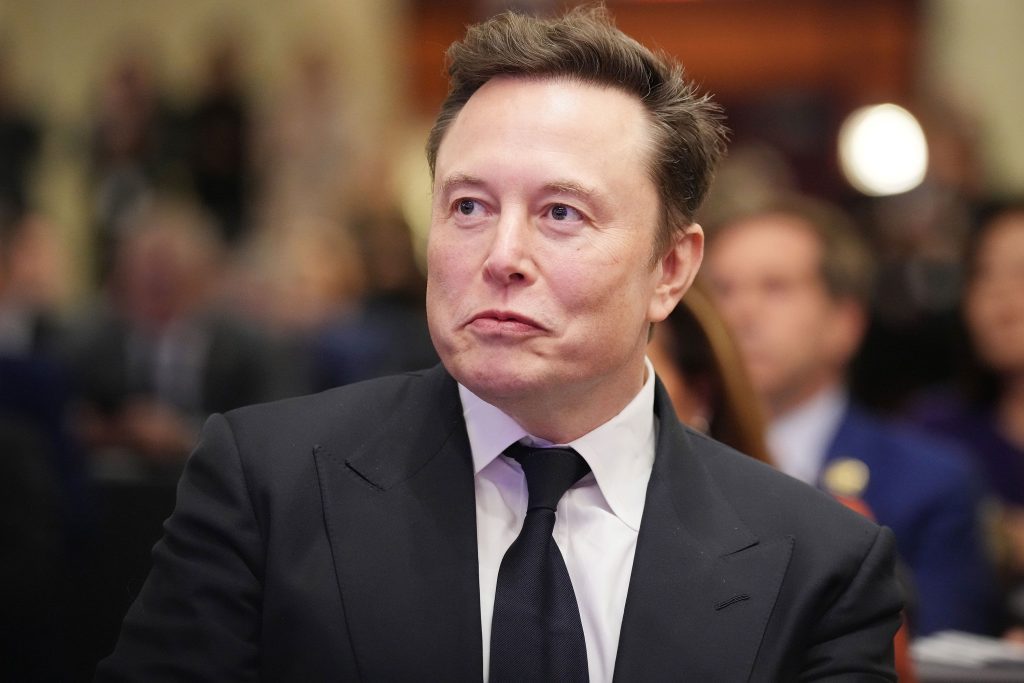Elon Musk Calls for Legislation to Hold Judges Responsible When Repeat Offenders Commit Crimes After Release
When Elon Musk speaks, people listen. Sometimes his words spark excitement about the future of technology, like reusable rockets or electric cars. Other times, they create controversy because of his strong political opinions. This week, he did it again, but this time it wasn’t about Tesla or SpaceX. Instead, Musk took to his social media platform X to announce something that touches the justice system at its core. He declared that he wants legislation to hold judges accountable when repeat offenders—people who have been arrested and released multiple times—go on to commit more crimes.

It all started with a post that Musk shared on September 8, 2025. He wrote that he is “going to introduce legislation to hold judges accountable when violent repeat offenders they release commit new crimes.” In another post, he asked a question that echoed frustration many ordinary people feel: “Judges aren’t accountable after letting a 14-time repeat offender murder a young woman?”
That raw question captured attention because it wasn’t just about statistics or legal debates—it was about real lives lost and the heartbreak that comes with crimes that might have been prevented. For Musk, known as a man who often pushes boundaries in technology and business, the idea of pushing boundaries in the justice system felt like a natural extension of his outspoken personality.

To understand why this matters, it helps to look at the bigger picture. In the United States, judges hold a lot of power when it comes to releasing defendants, setting bail, and making sentencing decisions. Most of the time, these decisions are made with careful consideration, but there are cases where repeat offenders are released only to commit serious crimes again. Each of these cases raises the painful question: could something have been done differently to prevent it?
Musk’s statement shines a light on a frustration many people have with the justice system. There’s a sense that while criminals are held accountable for their actions, judges face almost no consequences when their decisions contribute to tragedies. The system allows for appeals and judicial reviews, but rarely does it hold judges personally responsible for the outcomes of the cases they oversee. Musk’s idea challenges that by asking whether there should be a system of accountability that directly ties a judge’s decision to the harm that may follow.
Of course, the idea raises immediate questions. How do you hold judges accountable without undermining their independence? Judicial independence is considered one of the pillars of democracy because it protects judges from political pressure. If judges start making decisions based on fear of punishment rather than the law, the justice system could become even more unpredictable. On the other hand, critics argue that independence doesn’t mean immunity, and accountability doesn’t have to equal punishment—it could mean stricter oversight, transparency, or consequences in extreme cases.
Musk’s comments struck a nerve because they came in the context of a heartbreaking story. A recent crime involved a man described as a repeat offender with more than a dozen previous arrests. Despite his record, he had been released, and soon after, he allegedly committed a brutal crime that took the life of a young woman. Cases like this aren’t just statistics—they are tragedies that ripple through families and communities. When Musk brought attention to it, he tapped into a sense of anger and helplessness that many people feel when reading about crimes that could have been prevented.

This isn’t the first time Musk has waded into political waters. Over the past year, he has become increasingly outspoken about policy issues, from immigration to bureaucracy, often aligning himself with calls for tougher accountability. What makes this announcement different is that it touches a part of the system that most people assume is untouchable: the judiciary. Unlike politicians, who face voters, or companies, which face market pressure, judges often operate in a world where their decisions rarely draw personal consequences, even if those decisions have life-and-death impacts.
The reaction to Musk’s announcement has been mixed. Supporters argue that he is saying what many have been thinking for years. They believe the justice system has become too lenient and that stronger accountability is the only way to fix it. They see Musk’s platform and influence as a way to push an issue that politicians often avoid because of how controversial it is.
Critics, on the other hand, worry that Musk’s proposal oversimplifies a very complex issue. Judges don’t operate in isolation—they follow laws, sentencing guidelines, and bail schedules that are often set by legislatures. Punishing judges for outcomes might discourage them from exercising discretion at all, leading to harsher decisions that don’t always serve justice. For example, someone arrested on a minor offense could face unnecessarily harsh treatment just because a judge doesn’t want to risk being blamed for a future crime.
Still, Musk’s comments are a reminder of how public opinion is shifting. For years, debates about crime and punishment have swung between calls for reform and demands for toughness. In recent times, with rising public concern over crime in cities, the mood has tilted toward wanting stricter accountability. Musk, always tuned into the cultural conversation, seems to have placed himself firmly on that side.
The next big question is whether Musk’s idea will translate into actual legislation. While he has immense influence, especially with his wealth and visibility, he isn’t a lawmaker. To become real, his idea would need to be taken up by members of Congress or state legislatures. It’s possible that sympathetic politicians will embrace the concept, especially since Musk has a track record of turning bold ideas into action. But it’s equally possible that legal and constitutional challenges will slow down or block any attempt to make judges personally accountable in the way Musk describes.

Regardless of what happens, Musk’s announcement has already had an impact. It has put the spotlight on an uncomfortable truth: the justice system isn’t always working the way people want it to. Families who lose loved ones to crimes committed by repeat offenders often feel invisible in debates about criminal justice reform. Musk’s blunt language gave voice to their pain and anger, making it harder for politicians and the public to ignore.
At the end of the day, whether you agree with Musk or not, his words remind us of the human cost behind policy debates. This isn’t just about numbers or legal theory—it’s about lives cut short, families shattered, and communities left wondering if the system cares more about procedures than people. By calling for accountability, Musk has reopened a conversation that is as old as the justice system itself: how do we balance fairness, independence, and responsibility in a way that truly serves the public?

For now, the story is still unfolding. No legislation has been drafted, and no details are known about how Musk envisions this accountability working in practice. But the fact that the conversation has started is significant. In a world where technology moguls often dominate headlines for futuristic inventions, Musk’s latest move is a reminder that some of the most pressing issues are not about rockets or artificial intelligence—they’re about safety, trust, and justice right here at home.


